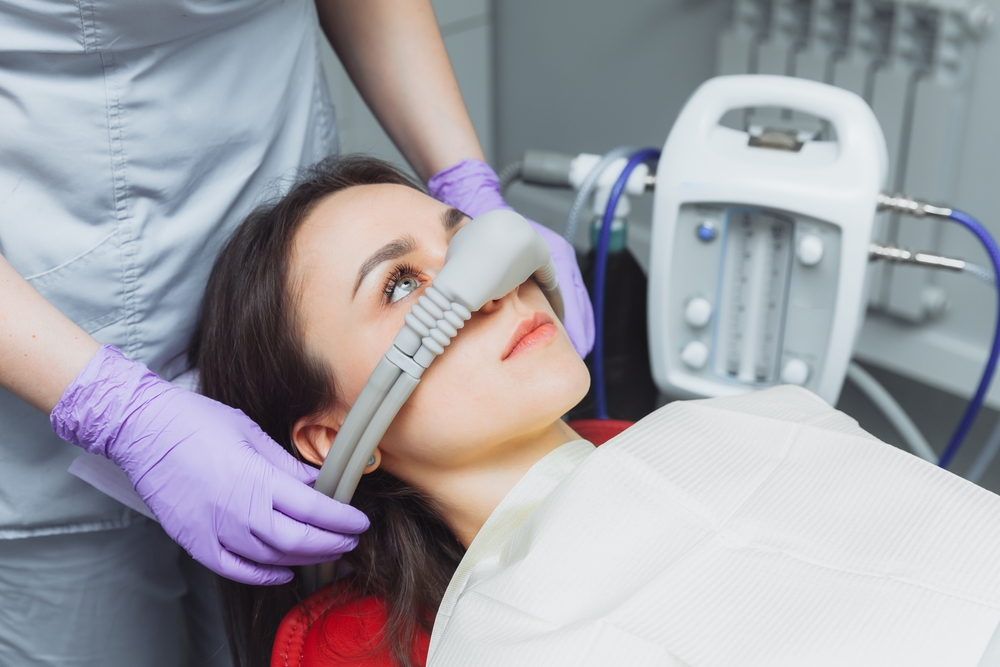Who Should Consider Sedation Dentistry?

Sedation dentistry, also known as sleep dentistry, is a specialized field of dentistry that involves the use of medication to help patients relax and feel comfortable during dental procedures. This type of dentistry is designed to cater to individuals who experience anxiety, fear, or phobia when it comes to visiting the dentist. By administering sedatives, dentists can help patients feel more at ease and less aware of the treatment being performed, making the overall experience more pleasant and manageable.
Sedation dentistry can be used for a wide range of dental treatments, from routine cleanings and fillings to more complex procedures like root canals, extractions, and dental implant placements. The level of sedation can vary depending on the patient's needs and the complexity of the treatment, ranging from mild sedation to deep sedation or even general anesthesia.
How Does Sedation Dentistry Work?
The process of sedation dentistry typically involves the administration of sedatives or anesthetics before the dental procedure begins. These medications can be administered in various ways, including:
Oral Sedation: Patients take a pill or liquid medication, such as Valium or Halcion, about an hour before the appointment. This type of sedation helps patients feel drowsy and relaxed, but they remain conscious and able to respond to the dentist's instructions.
Inhalation Sedation: Also known as "laughing gas," this type of sedation involves the patient inhaling a mixture of nitrous oxide and oxygen through a small mask. This method quickly helps patients feel calm and at ease, and the effects wear off quickly after the procedure is complete.
Intravenous (IV) Sedation: In this method, the sedative is administered directly into the patient's bloodstream through a small needle in the arm or hand. This type of sedation provides a deeper level of relaxation and can be adjusted throughout the procedure as needed.
General Anesthesia: For more complex or extensive dental procedures, the patient may be given general anesthesia, which induces a state of unconsciousness. This is typically reserved for patients who require extensive work or who have significant dental anxiety or phobia.
Who Should Consider Sedation Dentistry?
Sedation dentistry can be beneficial for a wide range of patients, including:
Individuals with Dental Anxiety or Phobia: If you experience significant fear or anxiety when visiting the dentist, sedation dentistry can help you feel more relaxed and comfortable during your appointments.
Patients with a Low Pain Tolerance: Sedation dentistry can help reduce or eliminate any discomfort or pain associated with dental procedures, making the experience more manageable for those with a low pain threshold.
Individuals with a Sensitive Gag Reflex: Sedation can help suppress the gag reflex, allowing the dentist to perform procedures more effectively and comfortably.
Patients with Difficulty Sitting Still: Sedation can help keep you calm and still during lengthy or complex dental treatments, making the process easier for both you and the dentist.
Individuals with Developmental or Cognitive Disabilities: Sedation dentistry can be particularly beneficial for patients with conditions like autism, Down syndrome, or Alzheimer's disease, who may have difficulty cooperating during dental appointments.
Patients Requiring Extensive Dental Work: If you need multiple or complex procedures, such as root canals, extractions, or dental implants, sedation dentistry can help make the experience more manageable and comfortable.
The Benefits of Sedation Dentistry
Choosing sedation dentistry can provide a range of benefits. Sedation helps you feel more relaxed and calm during your dental visit, alleviating the anxiety and fear that many people experience when visiting the dentist. Sedation can also help reduce or eliminate any discomfort or pain associated with dental procedures, making the experience more comfortable and tolerable.
By overcoming the fear and anxiety that often prevents people from seeking regular dental care, sedation dentistry can help you maintain better oral health and prevent more serious dental problems from developing. Sedation can help patients who have difficulty sitting still or following instructions during dental procedures, making the process easier for both the patient and the dentist. Sedation can help patients remain calm and still, allowing the dentist to work more efficiently and complete the necessary treatments in a shorter amount of time.
Book a Consultation with Elite Dentistry & Implant Center Today
Sedation dentistry can be a game-changer for individuals who struggle with dental anxiety, fear, or other challenges that make visiting the dentist a daunting experience. By providing a range of sedation options to choose from, dentists can help patients feel more relaxed, comfortable, and in control during their dental treatments. Whether you're in need of routine care or more extensive procedures, sedation dentistry can make the process easier and more manageable, allowing you to maintain your oral health without the stress and discomfort often associated with traditional dental visits.
If you're considering sedation dentistry, schedule a consultation with Elite Dentistry & Implant Center to discuss your options and determine the best approach for your individual needs. Visit our office in Chelsea, Alabama, or call (205) 678-2525 to book an appointment today.








